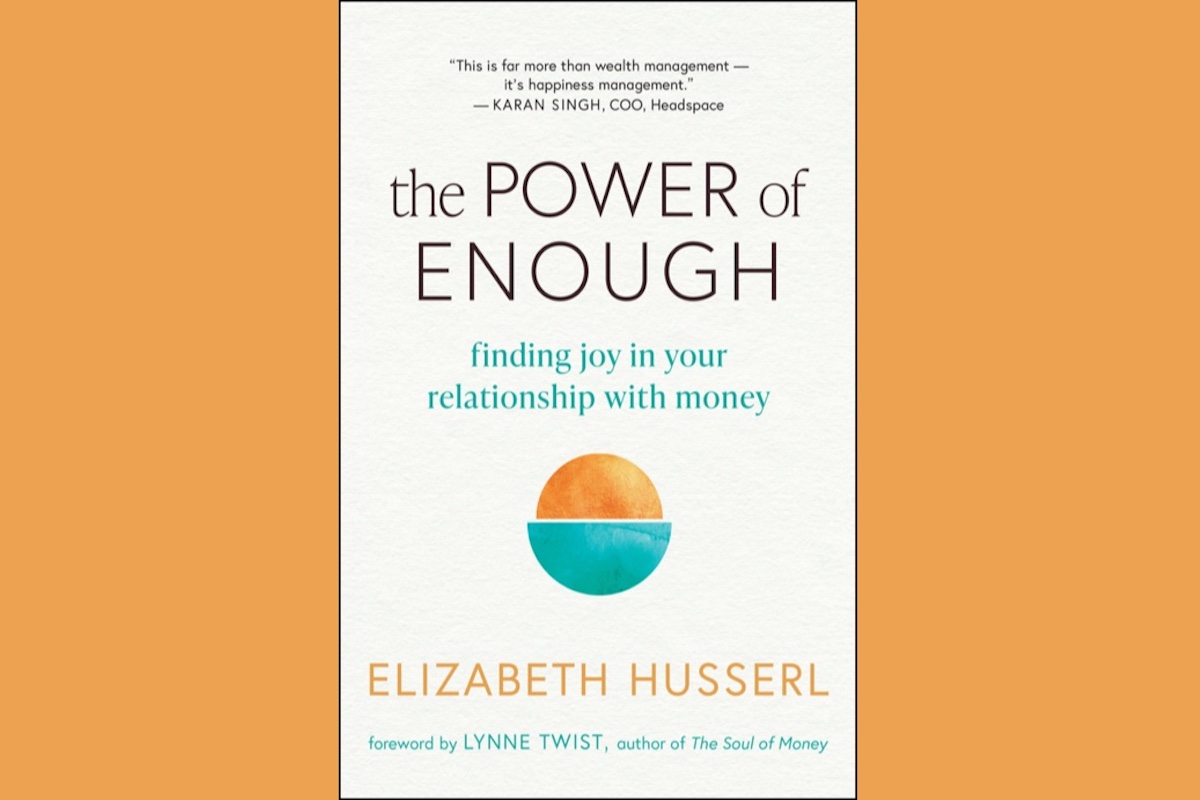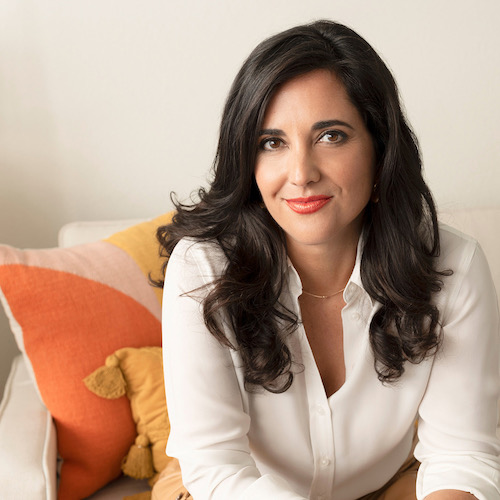
An excerpt from The Power of Enough, by Elizabeth Husserl
When I was a young girl, my mom encouraged me to use the phrase “I feel satisfied!” after a meal I enjoyed, instead of saying “I feel full!” Manners aside, she was teaching me a fundamental lesson that underlies everything I offer in this book: There is a difference between feeling full and feeling satisfied.
Fullness generally refers to a physical sensation of having filled one’s stomach. It’s the bodily response to the volume of food consumed, which contributes to the feeling of having no desire to continue eating. Fullness is more about the actual physical state of being after consuming food. Eating to the point of being full addresses the abundance-scarcity cycle — we required food to fulfill one of our needs. Once you eat to the point of being full, eating more no longer fulfills a need but exceeds it. Overeating doesn’t make you any less hungry, nor does it add to a sense of wealth. In fact, in some extreme cases, overeating can be a violating satisfier. We eat to meet a need, but if this leads to us becoming overweight, a whole host of other health concerns might arise.
Satiation, while related to fullness, has a broader psychological component. It is the process that causes one to stop eating, which includes the feeling of being satisfied. Unlike fullness, which can occur simply because there is no more room for food, satiation is influenced by the types of food eaten, the enjoyment of the meal, taste, and smell. It signals not just the cessation of eating but the satisfaction derived from the meal, which can prevent further eating until hunger returns.
Satisfaction is a guiding principle that steers our journey, not just an end. The very notion of satiation is rooted in the Latin satis, which suggests the state of being satisfied. Satiation is not a static end point but a transformative experience. Satiation brings a radical shift; it is what motivates you. We can never get rid of our innate drive and desire to seek. But as we learn to embody and compound moments of meaning, we develop direct access to our power of enough to build wealth from the inside out.
Here’s the hidden truth of the abundance-scarcity cycle: aiming for fullness can tip the scales from abundance into indulgence, hindering one’s sense of well-being instead of adding to it. Feeling like we have an abundance of food can help us to feel secure, but consuming too much does not do anything more to address our hunger.
You can become full from practically anything: water, food, activities, work, deadlines, people you love. But being full of something doesn’t mean we are satisfied. And adding more resources or experiences to an already full plate does not necessarily bring about satiation. To embody satiation, we need to digest and integrate the meaningful experiences in our lives.
As you move beyond just meeting your security needs like financial and physical health, you pursue deeper desires that engage you fully with life. Our desires have a role to play, teaching us about our needs. They are not merely indicators of lack. They propel us toward growth by revealing ways to satisfy ourselves. We long for wholeness. If channeled correctly, desires can propel us out of a narrow focus on the abundance-scarcity cycle into the bigger continuum of meaning and completeness. Remember that we are wired to seek, but we can turn and redirect desires toward meaning and purpose. When we embody these, we can experience the world feeling nourished and satisfied, rather than simply full.
This proactive stance empowers us to shift toward a richer, purpose-filled narrative where we each have the power to design our life. The ancient Greeks called this new way of relating to the world eudaimonia, which translates to “human flourishing.” Eudaimonia stems not from lack but from a drive toward fulfillment. True embodied wealth encourages you to dive deep into the infinite well of meaning within you — embracing your power of enough.
Often when I practice digesting an experience to create a sense of satiation, I close my eyes. This helps me filter out the external world and focus on what is bringing me satisfaction at the moment. The more I pay attention, the more satisfaction expands, and the more meaning I can integrate.
This process brings us to a place of trust — a knowing in our bodies that we can take care of ourselves with what we choose and what we have. The quality of how and what we pick matters. Are you chasing after quantity and packing your days with too many commitments and things? Or are you practicing quality, taking the time and effort to discern what strategies work best to fit your needs and leave you feeling satisfied? These are crucial questions to ask for moving from a paradigm of accumulating wealth to one of embodying it.
Excerpted from the book The Power of Enough: Finding Joy in Your Relationship with Money. Copyright© 2025 by Elizabeth Husserl. Reprinted with permission from New World Library. www.newworldlibrary.com
We’d love to hear from you! Please send us your suggestions for future articles. And if you’re a writer, please see our writer’s submissions page for details.

